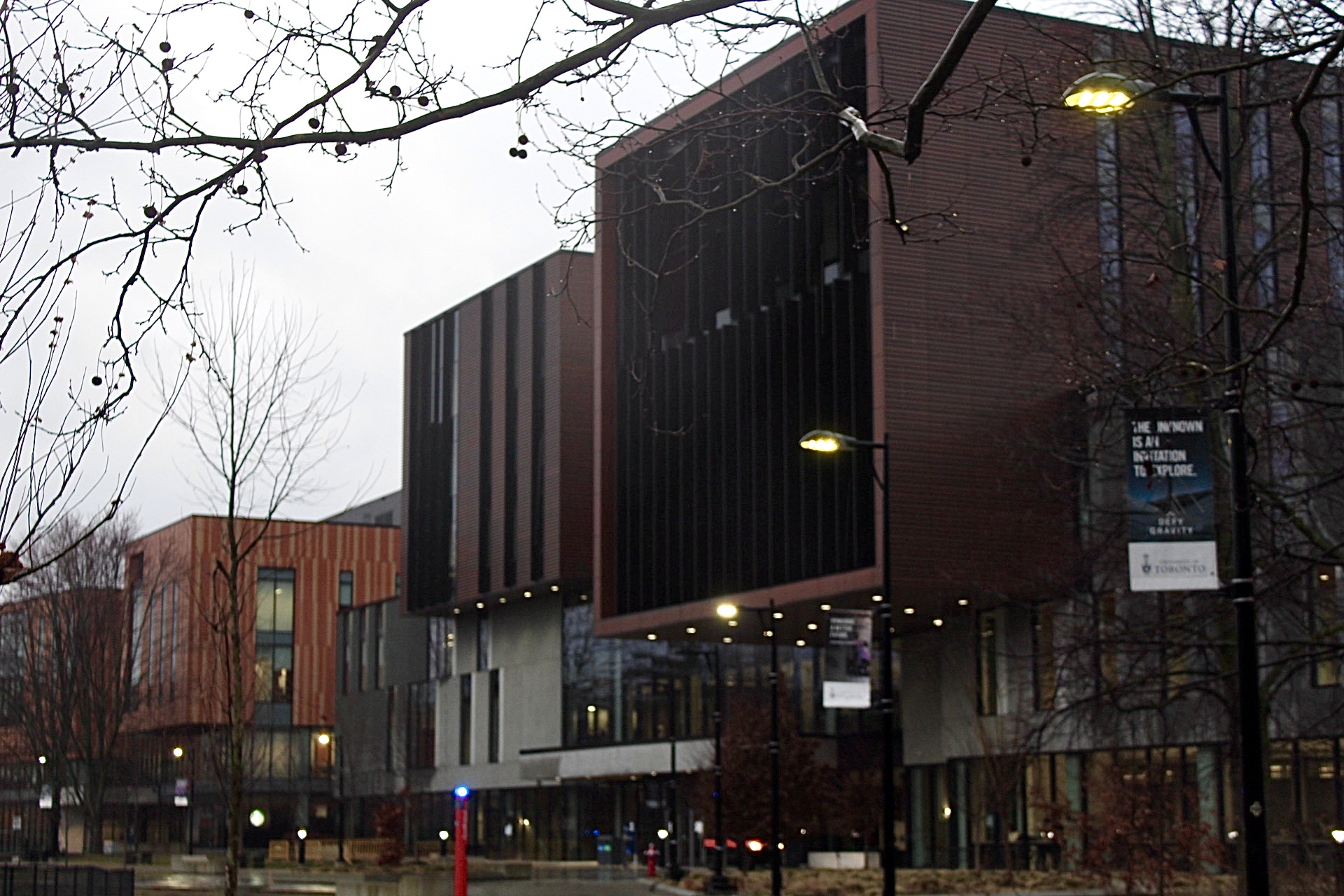Crafting stories with Dr. Brent Wood: Inside UTM’s creative writing program
Dr. Wood promotes student creativity on campus and brings communities together through creative writing.
In the Department of English & Drama at the University of Toronto Mississauga (UTM), there is a program that focuses on the creation of stories. The creative writing program is designed for students to focus on expressing themselves through literature or drama in a creative way.
Dr. Brent Wood is a sessional lecturer within the creative writing program in the English department. Dr. Wood got his PhD from the University of Toronto, where he explored creative writing and studied poetry for his thesis. However, he states that this was not what he taught when he began teaching in the English department. Instead, he taught Canadian literature and very standard English courses, including poetry. Dr. Wood noted he had many keen students who wanted to learn more about poetry and wished to read more after class. So, he took them to a picnic table by the former North Building and passed a book of poetry around. This became a recurring event every Thursday and was open to anyone else who wished to join.
Things changed during the pandemic when Dr. Wood had a child, which led to the tradition being discontinued. However, later on, the opportunity re-emerged when he was asked to teach the creative writing course. This tradition was carried on to the course and moved away from the idea that the student is writing or performing with perfection. Instead, he emphasized being open to engaging with people socially and sharing ideas through the activity.
When asked about the creative writing program’s purpose, Dr. Wood states that “there are two angles on that, one [is] that it fits as an English literature course because you’re analyzing the nuts and bolts [and] practical techniques of putting texts together. So, it’s like another way of satisfying the same kind of desires you would have taking English courses where you’re just reading and criticizing [but], in this case, instead of merely criticizing, you’re trying to apply those techniques to your own writing.”
Dr. Wood says that when students take an English course after a creative writing course, they are much sharper in pinpointing what the writer was trying to do, which is why the program is helpful for a lot of English majors. “If you’re not that interested in studying texts and just wish to make your own texts, that’s what creative writing courses are typically for.”
Dr. Wood emphasizes that the program is just a minor and differs from the professional writing and communication program at UTM. “It’s not necessarily going to set you up to become a professional writer, but it will [aid you] in becoming involved in the creative collective process,” he explains.
“[Regardless of which community you study in] there is a real value in collective art. One of the things I like to emphasize in my creative writing courses is that it’s not just you sitting in your room having a fantasy you want to put down on paper. You need to [connect with] people interested in the same kind of thing and share it.”
Dr. Wood states that this is where most of the value found in collective art is: through sharing stories with each other and building your confidence. This is “not necessarily so you can make money and a career out of this, but so you can get into some collective artmaking. This is something lacking in people’s lives, especially after the pandemic. Collective artmaking is the number one place for spiritual and social growth,” he adds.
Dr. Wood also thinks this program ties in well with other programs because it is part of the English & Drama Department. “The drama department side of things is much more oriented towards making art [as opposed] to just studying it.” He cites the theatre and drama program that involves both practical and theoretical elements. “They work on the practical side of things at Sheridan and then come [to UTM] to study more theoretical drama. It’s nice to have something happening on the non-performance side to provide a nice balance between the practical and theoretical.” Dr. Wood states the creative writing minor provides English students with a similar balance because now they also have a practical aspect of what they do. He also notes you cannot do theatre on your own and creative writing creates the aspect of connecting and coming together to create art like students who study theatre.
Dr. Wood also teaches the course ENG110H5: Narrative this term. When asked how the course connects to crafting stories and writing, he says, “The way I teach has a lot of focus on oral storytelling, essentially. When we talk about narrative in that course, it’s not so much literary narratives but narratives of cultural continuity that teaches lessons with deeper psychological and symbolic forces attached to them.” Dr. Wood wants students to think about narratives in a broader context to include narratives beyond short stories and novels, and to think about where narratives can come from.
“For me, when you as a writer plug into the oral narrative tradition, you bring a little oral narrative energy into your written narratives. My POV is that the more you can bring oral literary energy into a written narrative, the more lively it is and the easier you can connect with your audience.” Dr. Wood notes that while this course is not a prerequisite, the ideas of oral narratives in writing make taking the course an ideal starting point to pursue creative writing.
Dr. Wood also notes that creative writing courses are popular among students and are increasing in popularity every year. He believes that, when this program started, there was a real deficit in art history at UTM. The St. George campus had a music program while drama students went to Sheridan for their practical theatre work. He notes a “real thirst among students [at UTM] for some sort of creative option they can work with.”
The program has also drawn in students from other majors, often attracting forensic and computer science majors, which is the bonus of creative writing as a minor. “It’s fun to have many different types of students [and] perspectives in the classroom,” concludes Dr. Wood. “That kind of energy percolates around the whole campus and the whole campus gets a little extra boost in terms of creativity [and] wanting to be here.”
Staff Writer (Volume 49 & 50) — Yusuf is in his fourth year completing a double major in English and Cinema Studies and a minor in History of Religions. He first joined The Medium in 2022 when he sought to get involved in the on-campus community. He has developed strong writing skills throughout the experience and enjoys learning about new topics he wouldn’t know about otherwise. You can connect with Yusuf on LinkedIn.


